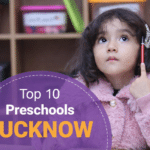Babies grow and develop at an incredible pace during their first year of life. As a new parent, it can be both exciting and overwhelming to witness your baby’s milestones, from learning to roll over to saying their first words. One of the significant milestones in a baby’s development is their ability to recognize their mother.
However, newborn babies can start recognizing their mothers within days of birth, but some can take two months or more. This recognition process is a crucial aspect of the bond between a mother and child, shaping their relationship in the months and years to come. In this blog, we will discuss when babies begin to recognize their mom and the factors that influence this process.
Key Takeaways:
- Newborn baby learns to recognize their mother’s voice and scent within days of birth.
- Babies can start recognizing their mother’s face and expressions by two months or more.
- The strong bond between a mother and her child is formed through attentive and responsive care.
- Factors such as skin-to-skin contact, breastfeeding, and eye contact can help strengthen the bond.
In This Article
Developmental stages of a baby Memory
As babies grow and develop, they go through various stages of memory development. These stages are closely linked to their overall cognitive development and ability to process and retain information. Here is an overview of the developmental stages of a baby’s memory:
1. Sensory Memory: From birth, babies start developing sensory memory, which refers to the ability to retain impressions of sensory information for a short duration. This includes remembering sounds, smells, tastes, and tactile sensations.
2. Short-Term Memory: As babies reach the age of a few weeks, their memory starts to extend beyond immediate sensory experiences. Short-term memory allows them to hold information in their mind for a brief period, usually up to two days. This early form of memory helps babies recognize familiar people, voices, and objects.
3. Long-Term Memory: Long-term memory begins to develop around the age of 5 months. At this stage, babies can retain information for longer periods. They may remember events, family members, or experiences from the past and demonstrate recognition through their behaviors and reactions.
4. Explicit Memory: Explicit memory, also known as declarative memory, involves conscious recollection of facts and events. It starts to emerge around 9 to 12 months of age when babies begin to form more complex memories and actively recall specific details.
Furthermore, babies recognize their mothers within days of birth due to their sensory memory. They have spent nine months in the womb listening to her voice, feeling her movements, and smelling her scent. This familiarity helps them bond with their mother immediately after birth.

Early Signs of Recognition in Babies
Babies start to recognize their parents’ faces and voices within the first few weeks of life. As they grow older, babies become more responsive to their mother’s touch, smell, and even her facial expressions. Here are some early signs of recognition in babies:
- Smiling or cooing when they see their mother: Baby begins to smile and make more eye contact with their mother.
- Turning towards their mother’s voice: Generally, a baby’s brain can recognize familiar voices and will turn towards their mother’s voice when hearing her.
- Focusing on her face when she speaks: As babies grow, their vision improves, allowing them to focus on their mother’s face and expressions when she speaks to them.
- Crying differently for different caregivers: Many babies remember their primary caregivers’ faces and voices and will cry differently when attended to by someone else.
- Displaying separation anxiety: Around six to eight months, babies may start to show signs of separation anxiety when separated from their mothers. They understand their parents’ faces and voices and may become distressed when they are out of sight.
Moreover, while these signs are common, it’s important to note that the timing and intensity of recognition can vary between babies. Factors such as;
- The amount of time spent together,
- The quality of interactions with the mother, and
- The mother’s level of attentiveness and responsiveness to her baby’s needs can all influence when a baby recognizes their mom.
Hence, the frequency of interactions between a baby and their mother can impact the speed at which recognition signs develop. Parents need to understand that each baby develops at their own pace and should not worry if their baby takes a little longer to recognize them.
When do babies start remembering faces and things?
Babies can recognize their primary caregivers’ faces between 2 and 4 months. By 4 months, they will also be able to recognize familiar faces and objects from a distance. At this stage, infants become more attentive to the faces of their parents or other family members and start responding to their expressions accordingly.
The ability to recognize faces depends on the baby’s visual development, while short-term memories are closely linked to their cognitive development. Generally, child development experts believe that babies are capable of remembering specific things for a few days at a time.
It’s important to note that individual babies may differ in the timing and progression of this milestone. Some studies suggest that babies can recognize their parents’ faces within days or weeks. Also, they can take once a week to make the connection.

How do babies express recognition?
Babies have various ways of expressing recognition as they develop and form attachments with their caregivers. Here are some common ways in which babies demonstrate recognition:
1. Voice Recognition: Babies can recognize familiar voices, especially those of their caregivers. They may turn their head or display heightened attention when they hear their mother and father’s voice. They can also respond to changes in tone, distinguishing between soothing and playful tones.
2. Facial Recognition: Around 4 months old, babies begin to recognize familiar faces, including their caregivers and close relatives. They may light up with a smile or show excitement when they see someone they recognize.
3. Name Recognition: By around 6 months, babies can start to recognize their own names. They may respond by turning their head or looking towards the source of their name being called. This milestone indicates that babies are beginning to associate their names with their own identities.
4. Command Recognition: As babies approach 12 months of age, they can start understanding simple, spoken commands. For example, they may respond appropriately when asked to wave goodbye or give a high-five.
5. Self-Recognition: Between 6 and 18 months, babies can exhibit self-recognition when seeing their reflection in a mirror. They may smile, reach out, or engage in playful interactions with their own reflection.
Does my baby recognize me by my scent or voice?
Yes, babies are capable of recognizing their mothers by both scent and voice. Here’s how babies recognize their mothers through these sensory cues:
Recognize by Smell: Newborns have a remarkable sense of smell and can recognize their mothers by scent even before they are born. The amniotic fluid they are surrounded by in the womb carries their mother’s unique scent, which they become familiar with during pregnancy. After birth, babies are naturally drawn to the scent of their mother’s breast milk and her natural body odor. This scent familiarity provides them with a sense of comfort and security.
Recognize by Voice: However, research suggests that babies can distinguish and respond to their mother’s voice even at birth. They have been listening to their mother’s voice in the womb, so they are already familiar with its sound. Similarly, if the father is present and talks regularly during the third trimester of pregnancy, babies can recognize their father’s voice as well.

How can I strengthen my baby’s recognition of me?
As a parent, there are several ways you can help strengthen your baby’s recognition of you. The key is to provide attentive and responsive care, as this plays a significant role in building a strong bond between mother and child. Here are a few tips:
- Skin-to-skin contact: Holding your baby skin-to-skin can have numerous benefits, including helping them recognize your scent and voice.
- Eye contact: Making eye contact with your baby while talking or playing can help them focus on your face and expressions, aiding in their recognition of you.
- Breastfeeding: Breastfeeding allows for close physical contact between mother and child, which helps strengthen the bond and promote recognition.
- Capture their attention: As your baby grows, they may become easily distracted. Making silly noises or playing peek-a-boo can help capture their attention and reinforce their recognition of you.
- Spend quality time together: Engage in activities that involve close interaction, such as playing, reading, and talking to your baby. Create a consistent routine that includes dedicated bonding time with your baby.
- Respond promptly to their needs: Be attentive and responsive when a baby cry or needs comfort. This will help them feel secure and build trust, ultimately strengthening their recognition of you as their caregiver.
- Involve other family members: Encourage other family members, such as the father or siblings, to actively interact with the baby. This helps the baby recognize and form bonds with other important caregivers.
Differences in recognition between mom and dad
While babies may recognize their mothers earlier and more easily, this does not mean they do not form strong bonds with their fathers as well. Recognition between mothers and fathers can differ in several ways:
- Parenting Approach: Mothers and fathers often have different approaches to caregiving, leading to unique interactions with their children. For instance, mothers tend to engage in more nurturing behaviors, while fathers may be more playful or physical.
- Physical Proximity: Babies spend more time with their mothers during the early months of life due to breastfeeding and maternal leave. This increased time together can contribute to a stronger recognition of the mother.
- Support and Guidance: As babies grow and develop, they look to their parents for support and guidance. Mothers and fathers may provide this in different ways, leading to distinct recognition patterns.
- Individual Differences: Every child is unique, and their recognition of their parents can vary based on their individual personality and preferences.
- Voice & Resemblance: Studies have shown that babies can recognize their mother’s voice and face within a few weeks of birth, making it easier for them to distinguish their mother from others.
Conclusion
To sum it up, babies are capable of recognizing their mothers’ voices and scents from the womb, making it easier for them to form an attachment after birth. As they grow older, babies start recognizing their caregivers’ faces and even respond to simple commands. However, individual differences in development may affect when these recognition signs emerge. Therefore, parents should be patient and nurturing towards their baby, as this will help strengthen their bond and promote healthy development!
FAQs
At what age does a baby bond with its mother?
A baby typically bonds with its mother between the ages of 3 to 6 months. This is when they develop a strong emotional connection and recognition towards their primary caregiver.











